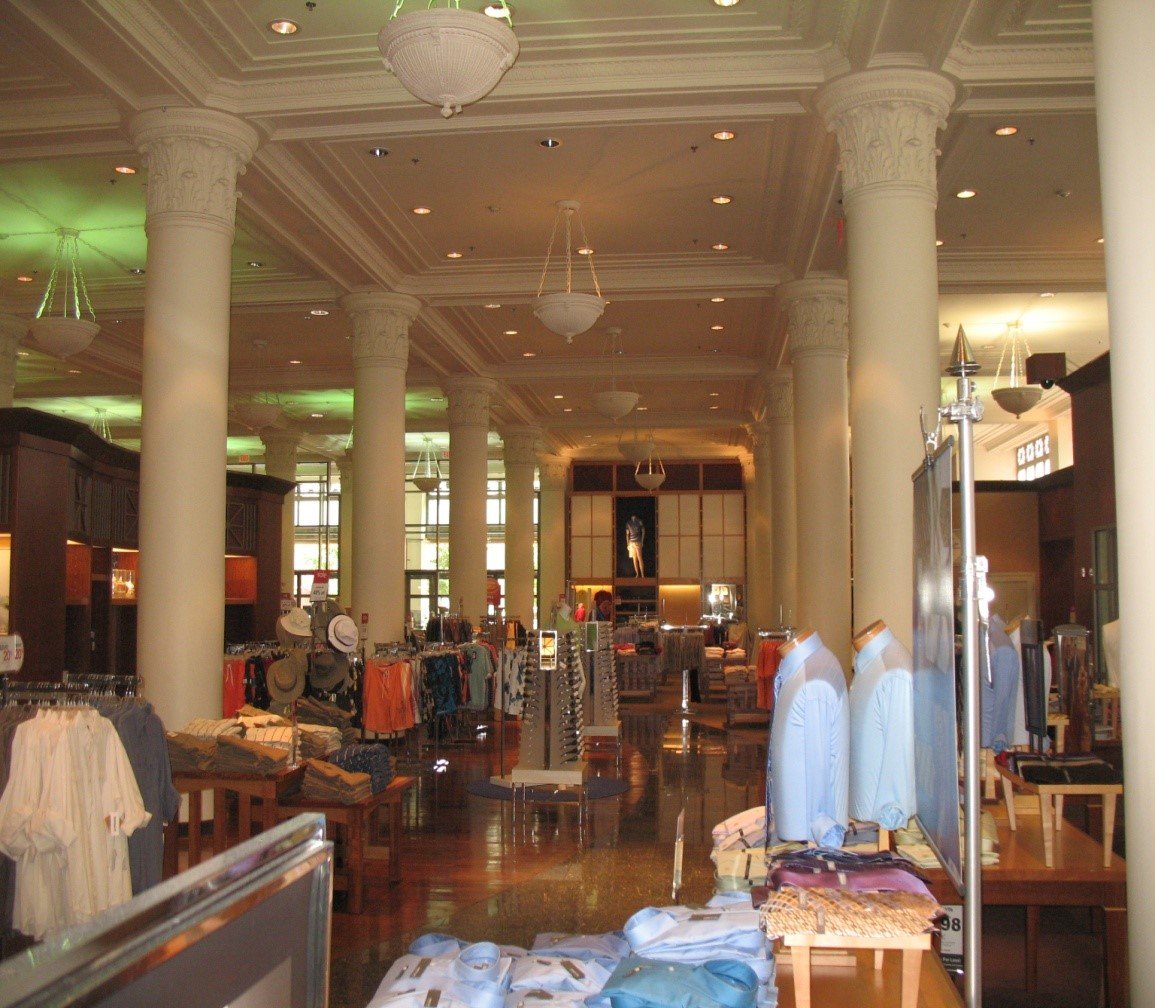20. Passing of L.S. Ayres Marks End of 134-Year-Old Tradition
James Glass
Column that appeared in the Indianapolis Star onThis month, the L.S. Ayres name will disappear from Indiana retailing after 134 years. At Glendale Mall, Lafayette Square, and Washington Square, the last Ayres stores are being converted to the Macy’s brand. The loss of the Ayres name may not make a major difference in shopping for most customers; the differences between most department store chains have been fading steadily since the 1980s. But, the change does signify a loss of local identity, as globalization of the world economy forces many long-time businesses to sell out to bigger concerns or merge with others in order to meet lower prices of competitors.
What have we lost in retailing as local department stores have disappeared? A look at the L.S. Ayres story will serve as an example. Founded by a Geneva, New York dry goods merchant, Lyman S. Ayres, in 1872, L.S. Ayres and Company offered the largest assortment of customer goods and services, the best in personal service, and the latest innovations in patron comfort and convenience in Indianapolis for most of its history. Although its founding family and management modeled their rapidly growing store on department stores in other major cities, they also developed their own distinctive identity and traditions. The original downtown store at Meridian and Washington offered clothing for women, men, and children; perfumes and notions; furs; candy; home appliances; furniture; toys; books; coins and stamps; and even groceries. In the big plate glass store windows at the street level, people passing by could see the latest fashions for women’s clothes created by Ayres’ own designers. Another store division created interior decoration schemes for private homes. The emphasis in most departments was on goods designed and manufactured within the store. In later years, Lyman S. Ayres, grandson of the founder, was proud of the “Ayres Look” in fashion that the store created. Other traditions had to do with luncheons and sweets. The Ayres tea room, although perhaps modeled on the Walnut Room at Marshall Field’s department store in Chicago, quickly gained its own reputation, as it developed distinctive recipes for chicken velvet soup, chicken pot pie, Hawaiian Chicken Salad, Pecan Ball dessert, and children’s menu items, such as a Humpty Dumpty hamburger or a Snow Princess dessert. The eighth-floor tea room also became a showcase for Ayres’s fashions, as models strolled by the tables and let patrons take a closer look. The store's auditorium became a magnet for families and children, as the Santa-land train and visits with Santa himself became popular and other seasonal celebrations took hold. Although much of the flagship store downtown was oriented to the upper end and middle-class markets, Ayres had something for every shopper, and its Downstairs Store, begun in 1920, afforded budget shoppers with quality merchandise marked down.
Ayres was not alone. Across the street was a large competitor, H.P. Wasson and Company, founded in 1870, which constructed an Art Deco-style store in the 1930s and 1940s. Wasson’s, operated by the Wolf and Efroymson families, prided itself on its own high fashions for women and fur salon. On Illinois Street was the William H. Block Company, founded by an Austrian immigrant and operated by his sons after the founder’s death in 1928. Block’s eight-floor store competed fully with Ayres and Wasson's and became known for its own full line of goods, tea room, auditorium for community events, and personalized service.
After World War II, American retailing underwent a revolution, as discount chains attracted larger and larger proportions of the American public’s dollars. Ayres fought back by starting its own discount chain, Ayr-Way, in 1961, but the squeeze on stores with higher end goods, service, and mark-ups continued. The only way to combat it seemed to be through mergers. Block’s in 1963, Wasson’s in 1967, and finally Ayres itself in 1972 sought purchase by large department stores chains with greater buying power. For about 20 years, the buy-out of Ayres by Associated Dry Goods allowed it to continue its own operation and traditions at the parent store downtown and in the mall stores opened in Glendale, Greenwood, Lafayette Square, Washington Square, and many other Indiana cities. However, the relentless shift to discount retailing led to the closure of the downtown store in 1992 and now the dropping of the Ayres name at the last suburban stores.
Is there still room for local retailers? What do you, the readers, think?

First Floor Shopping Room, L.S. Ayres and Co. James Glass, 2010
